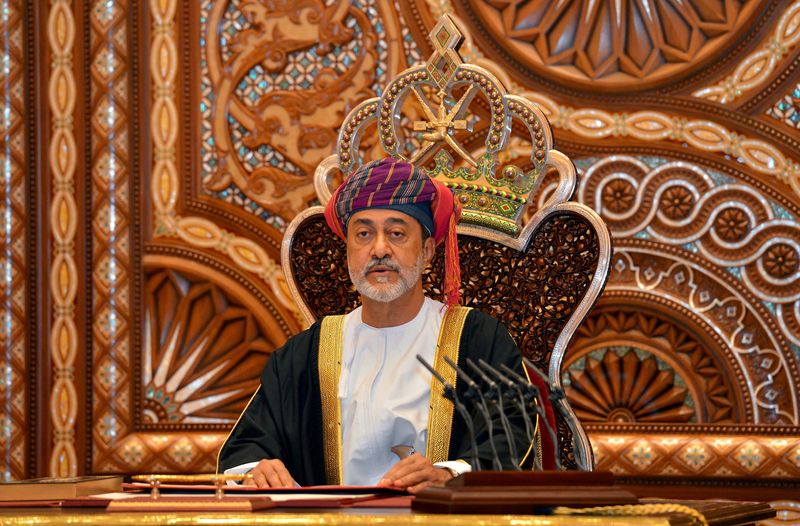By Lisa Barrington
DUBAI (Reuters) - Omanis no longer need state permission to marry a foreign national according to a royal decree issued this week, a rare example of social reform in the conservative Gulf country.
Sultan Haitham bin Tariq al-Said has, since assuming power in 2020 after the 50-year reign of the late Sultan Qaboos, embarked on long-delayed reforms to improve fiscal stability and attract foreign investment.
According to newspapers in Oman, where the government tightly controls media and public dissent, Omanis previously had to fulfil certain conditions, such as being over a certain age, to marry a foreigner. Unauthorised marriages drew fines.
On Sunday Omani state media said Sultan Haitham had issued decree 23/2023 which cancelled a 1993 law empowering the interior ministry to approve each marriage to a foreigner.
"The facts and circumstances of life have changed, and the economic situation has changed (since that 1993 law)," said Omani lawyer Salah al-Maqbali, re-stating to Reuters comments to Omani media outlet Shabiba on Monday.
The decree states that such marriages must not violate sharia (Islamic law), public order or other provisions banning holders of certain government jobs from marrying foreigners. But marriages previously deemed illegal can now be legalised, it said.
The full decree has not yet been published.
Omani nationals make up just over half of the population of around 3.8 million people.

Oman is a relatively small crude oil producer compared to its wealthier Gulf neighbours, and was hit by a post-2014 fall in oil prices and by the pandemic-driven price crash.
Higher recent oil prices and fiscal reforms have however improved state deficits and rating agency S&P last month revised Oman's outlook to positive, from stable. It said the government was repairing its balance sheet and had reduced gross debt to 40% of GDP in 2022, from around 60% in 2021.